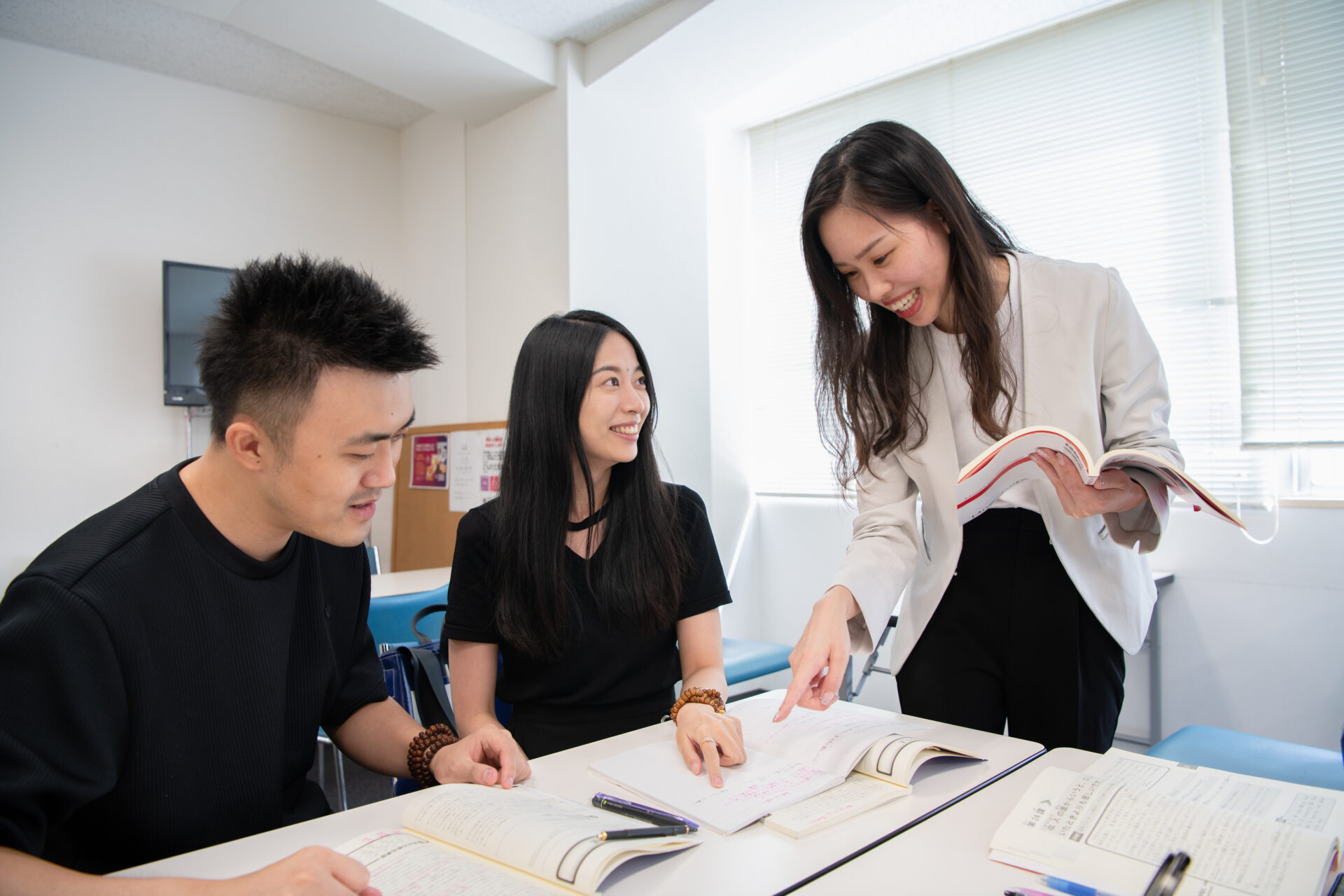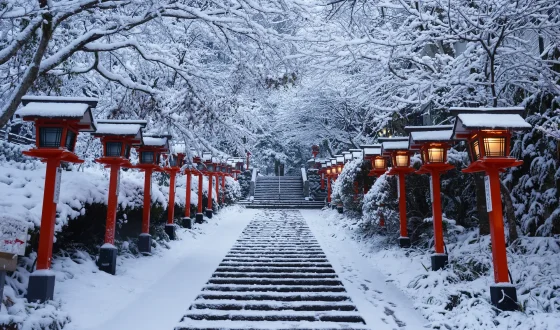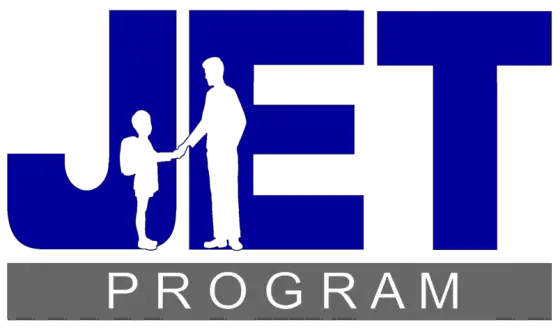Navigating Your Path: The 7 Best Japanese Language Schools in Japan
Explore the Best Japanese Language Schools in Japan. Discover factors to consider when making your choice, including profiles of leading institutions, admission guidance, and student experiences.
Intro
In the vibrant and culturally rich land of Japan, mastering the Japanese language opens doors to a world of opportunities and deep cultural immersion. Choosing the best Japanese language school is the first step on this transformative journey.
In this guide, we will take you on a tour of the top language schools in Japan, helping you navigate the diverse options available. Whether you’re a beginner eager to start your linguistic adventure or an experienced learner seeking to refine your skills, this comprehensive exploration will guide you towards the ideal institution for your Japanese language ambitions. Join us as we uncover the best Japanese language schools in Japan.
Best Japanese Language Schools in Japan
1. Tokyo Central Japanese Language School (TCJ)
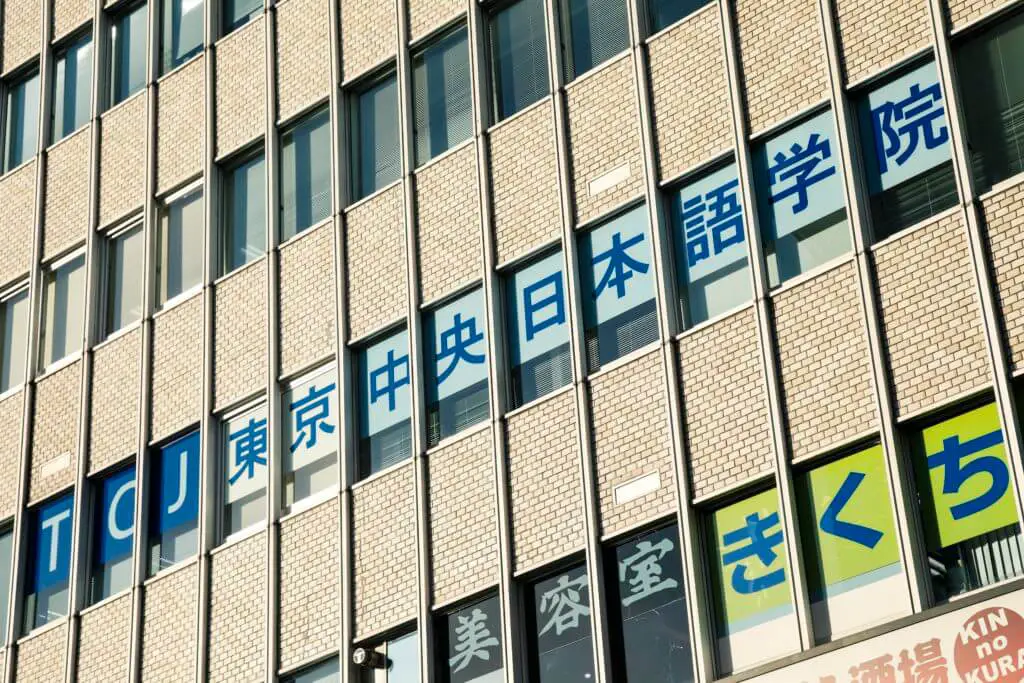
Tokyo Central Japanese Language School (Source: Google)
- Location: TCJ is located in the heart of Tokyo, Japan, specifically in the Chiyoda ward. Its central location allows students easy access to the city’s cultural attractions, business districts, and transportation networks.
- Accreditation and Recognition: TCJ is typically accredited by the Association for the Promotion of Japanese Language Education (JAFSA) and recognized by the Japanese Ministry of Education, Culture, Sports, Science, and Technology (MEXT).
- Language Proficiency Levels Offered: TCJ typically offers a range of courses catering to different proficiency levels, including beginner, intermediate, and advanced levels. Specialized courses for business Japanese and exam preparation (e.g., JLPT) may also be available.
- Class Size and Student-Teacher Ratio: TCJ often maintains small class sizes to ensure personalized attention and effective learning. Class sizes may vary depending on the specific course and level, but a low student-teacher ratio is a priority.
- Teaching Methods: TCJ is known for employing a variety of teaching methods, including interactive lessons, immersive experiences, and modern technology, to facilitate language learning. Their curriculum often emphasizes practical communication skills alongside a strong foundation in grammar and vocabulary.
2. ISI Language School
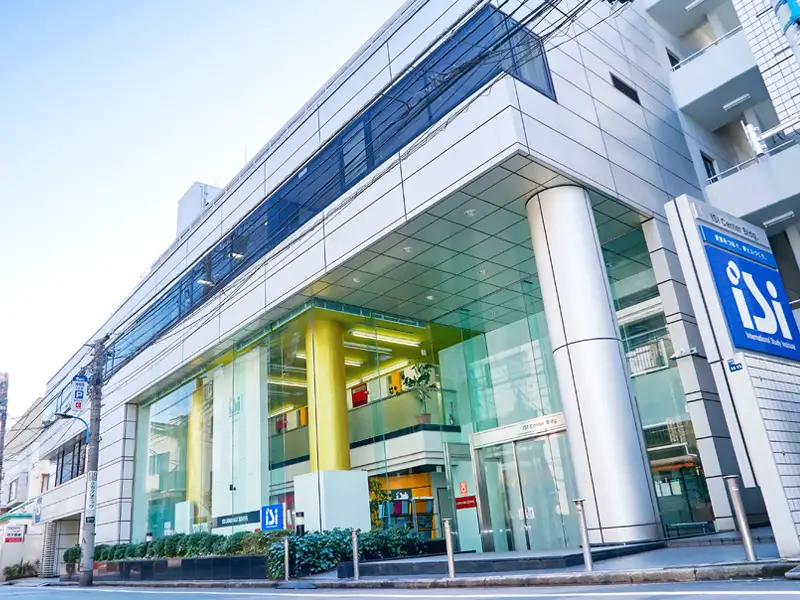
ISI Language School (Source: Google)
- Locations: ISI Language School has multiple campuses throughout Japan, including Tokyo, Kyoto, Nagano, and other cities. Each location offers a unique cultural experience and provides students with opportunities to explore different regions of Japan.
- Accreditation and Recognition: ISI Language School is typically accredited and recognized by various educational and governmental organizations.
- Language Proficiency Levels Offered: ISI Language School typically offers a range of courses catering to different proficiency levels, including: Beginner courses, intermediate courses, advanced courses for more proficient learners, and specialized courses, such as business Japanese or exam preparation courses for tests like the Japanese Language Proficiency Test (JLPT).
- Class Size and Student-Teacher Ratio: ISI Language School often strives to maintain small class sizes to ensure personalized attention and effective learning. The specific class sizes may vary depending on the course and the number of enrolled students. A low student-teacher ratio is generally a priority to facilitate active learning.
- Teaching Methods: ISI Language School typically employs a communicative and immersive teaching approach. This approach emphasizes practical language skills, including speaking, listening, reading, and writing. Students often engage in interactive lessons, role-plays, and real-life scenarios to enhance their language proficiency.
You may also like:
- Studying Abroad in Japan – The A-Z Guide
- Is CBD Legal in Japan? Exploring the Legality of CBD Products in Japan
- Best Universities In Japan For International Students
3. KCP International Japanese Language School
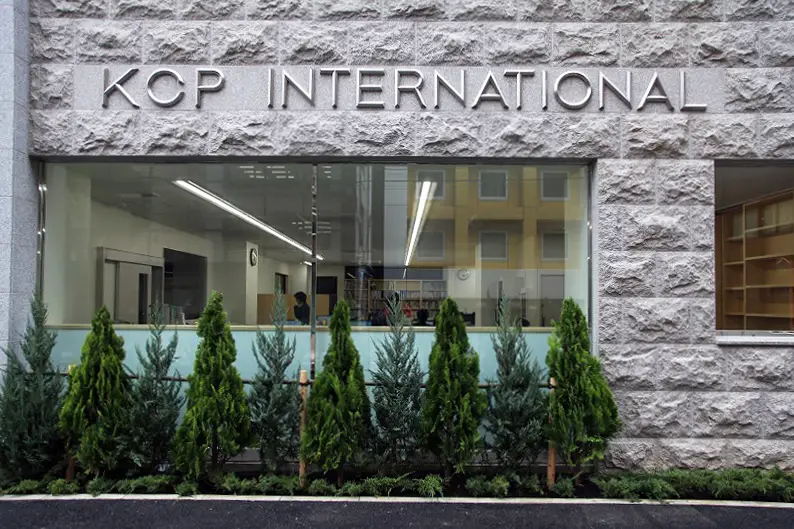
KCP International Japanese Language School (Source: Google)
- Location: KCP International Japanese Language School is located in Tokyo, Japan, in the Shinjuku district. This central location provides students with easy access to Tokyo’s cultural attractions, business districts, and public transportation networks.
- Accreditation and Recognition: KCP International Japanese Language School is typically accredited and recognized by educational organizations in Japan.
- Language Proficiency Levels Offered: TCJ typically offers a range of courses catering to different proficiency levels, including beginner, intermediate, and advanced levels. Specialized courses for business Japanese and exam preparation (e.g., JLPT) may also be available.
- Class Size and Student-Teacher Ratio: KCP International Japanese Language School often maintains small class sizes to ensure personalized attention and effective learning. A low student-teacher ratio is a priority to facilitate active learning and individualized support.
- Teaching Methods: KCP International Japanese Language School is known for its immersive teaching approach. This approach emphasizes practical language skills, including speaking, listening, reading, and writing. Students often engage in interactive lessons, cultural activities, and real-life scenarios to enhance their language proficiency and cultural understanding.
4. Shinjuku Japanese Language Institute
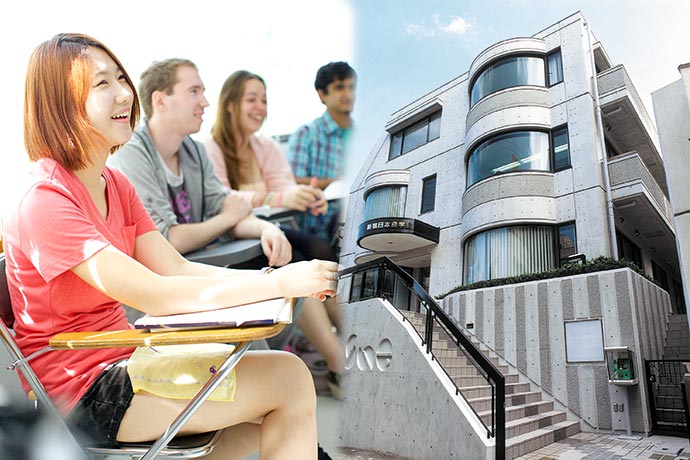
Shinjuku Japanese Language Institute (Source: Google)
- Location: The Shinjuku Japanese Language Institute is situated in Shinjuku, one of Tokyo’s most vibrant and central districts.
- Accreditation and Recognition: The school typically maintains accreditation and recognition from relevant educational and governmental authorities in Japan. This recognition ensures that the institution meets certain quality standards for Japanese language education.
- Language Proficiency Levels Offered: ISI Language School typically offers a range of courses catering to different proficiency levels, including: Beginner courses, intermediate courses, advanced courses for more proficient learners, and specialized courses, such as business Japanese or exam preparation courses for tests like the Japanese Language Proficiency Test (JLPT).
- Class Size and Student-Teacher Ratio: The school often aims to keep class sizes small to provide personalized attention and an effective learning environment. A lower student-teacher ratio facilitates interactive and engaging lessons.
- Teaching Methods: The Shinjuku Japanese Language Institute typically employs a communicative and immersive teaching approach. This method focuses on practical language skills, including speaking, listening, reading, and writing. Students often engage in conversation practice, cultural activities, and real-life scenarios to enhance their language abilities and cultural understanding.
5. Human Academy – Japanese Language School
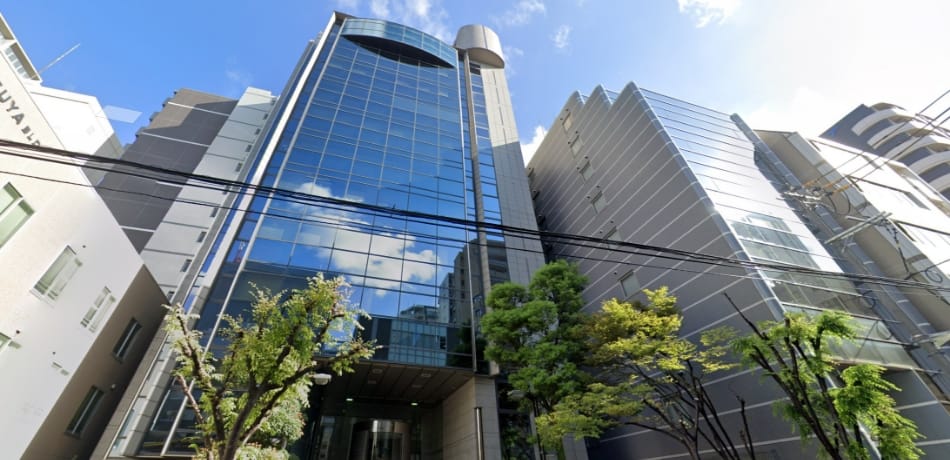
Human Academy (Source: Google)
- Location: Human Academy Japanese Language School has multiple campuses across Japan, including Tokyo, Osaka, and Fukuoka. These locations offer students the opportunity to choose the city that best suits their preferences for living and learning in Japan.
- Accreditation and Recognition: Human Academy Japanese Language School is typically accredited and recognized by relevant educational and governmental bodies in Japan. This recognition ensures the school’s commitment to providing high-quality Japanese language education.
- Language Proficiency Levels Offered: The school offers a comprehensive range of Japanese language courses to cater to students of all proficiency levels. These courses typically include: Beginner courses, intermediate courses, advanced courses and specialized courses such as business Japanese, JLPT (Japanese Language Proficiency Test) preparation, and cultural studies.
- Class Size and Student-Teacher Ratio: Human Academy often maintains small class sizes to facilitate personalized instruction and effective language learning. A low student-teacher ratio ensures that students receive individualized attention and support from their instructors.
- Teaching Methods: The school typically employs interactive and communicative teaching methods. Students engage in practical language activities, conversation practice, cultural immersion, and real-life scenarios to enhance their language skills and cultural understanding.
6. KAI Japanese Language School
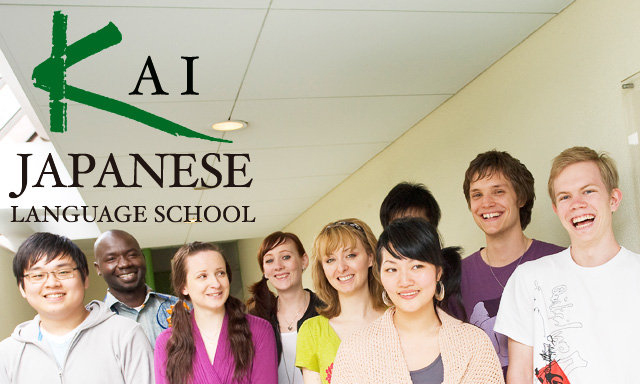
KAI Japanese Language School (Source: Google)
- Location: KAI is situated in the heart of Kyoto, a city renowned for its historical significance, traditional culture, and beautiful surroundings. Accreditation and Recognition: KAI Japanese Language School typically maintains accreditation and recognition from relevant educational and governmental organizations in Japan.
- Language Proficiency Levels Offered: KAI offers a range of Japanese language courses designed to accommodate students of various proficiency levels: Beginner courses, intermediate courses, advanced courses and specialized courses such as business Japanese and cultural studies.
- Class Size and Student-Teacher Ratio: KAI often emphasizes small class sizes to facilitate personalized instruction and effective language learning. A low student-teacher ratio ensures that students receive individualized attention and support from their instructors.
- Teaching Methods: KAI Japanese Language School typically employs immersive teaching methods that prioritize practical language skills. These methods include interactive lessons, conversation practice, cultural experiences, and real-life situational learning to enhance students’ language abilities and cultural understanding.
7. Genki Japanese and Culture School
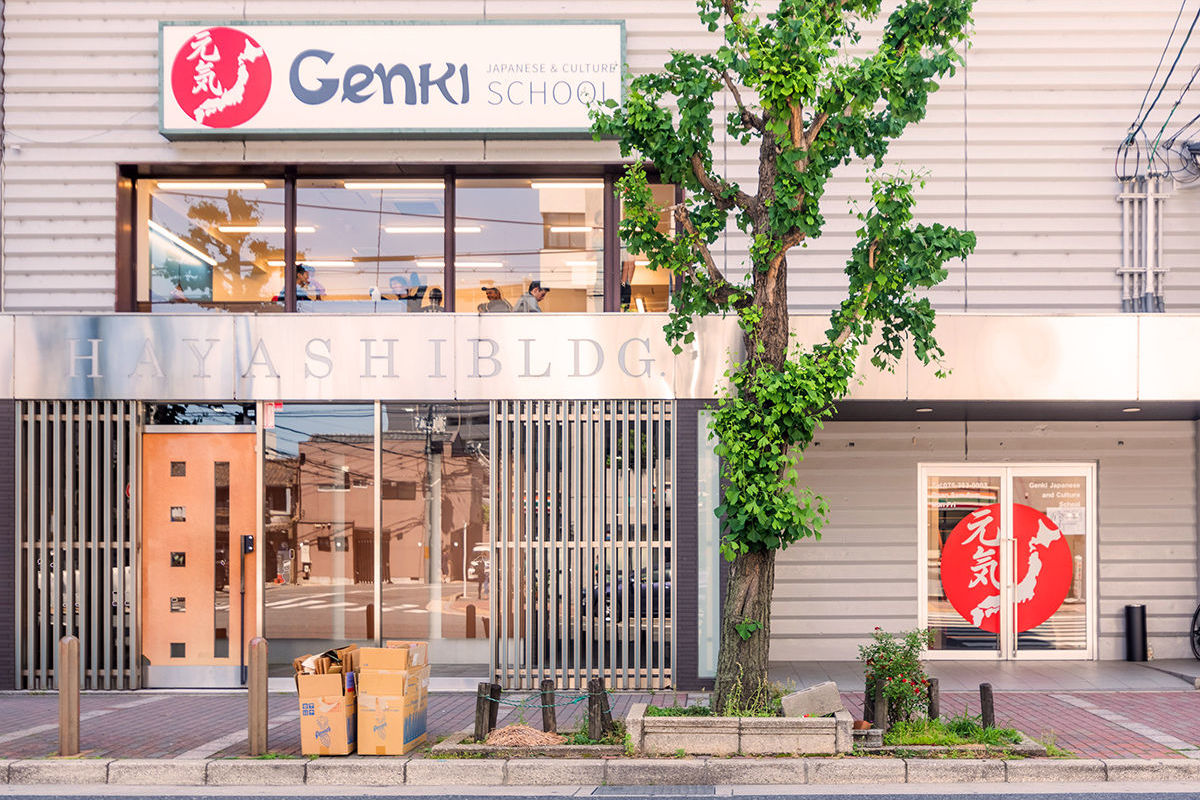
Genki Japanese and Culture School (Source: Google)
- Location: Genki Japanese and Culture School is located in Fukuoka, a vibrant city in the southwestern region of Japan. Fukuoka is known for its welcoming atmosphere, rich cultural heritage, and proximity to both urban and natural attractions.
- Accreditation and Recognition: The school typically maintains accreditation and recognition from relevant educational and governmental bodies in Japan. This recognition underscores the institution’s commitment to providing high-quality Japanese language education.
- Language Proficiency Levels Offered: Genki Japanese and Culture School typically offers a range of Japanese language courses to cater to students of varying proficiency levels.
- Class Size and Student-Teacher Ratio: Genki Japanese and Culture School often emphasizes small class sizes to facilitate personalized instruction and effective language learning. A low student-teacher ratio ensures that students receive individualized attention and support from their instructors.
- Teaching Methods: The school typically employs communicative and interactive teaching methods that prioritize practical language skills. Students engage in conversational practice, cultural activities, and real-life scenarios to enhance their language abilities and cultural understanding.
Factors to Consider When Choosing a Japanese Language School
Choosing the right Japanese language school is a crucial decision on your journey to mastering the language and immersing yourself in Japanese culture. Here are some essential factors to consider when making your choice:
- Location
Consider whether you prefer studying in a major city like Tokyo, Osaka, or Kyoto, or in a smaller town for a more immersive experience.
Think about proximity to public transportation, cultural attractions, and convenience for daily life.
- Accreditation and Recognition
Ensure that the school is accredited by relevant educational bodies in Japan and recognized by employers or universities if you plan to continue your education or work in Japan.
- Language Proficiency Levels Offered
Check if the school offers courses suitable for your proficiency level, whether you’re a beginner, intermediate, or advanced learner.
Look for specialized courses that match your goals, such as business Japanese or exam preparation.
- Class Size
Smaller class sizes generally allow for more personalized attention and better learning outcomes. A low student-teacher ratio ensures that you can actively engage in class and receive individualized support.
- Teaching Methods
Inquire about the school’s teaching methods. A balance of traditional and modern approaches, including immersive experiences, can be highly effective.
Look for practical application of language skills through conversational practice and real-life scenarios.
- Admission and Application Process
Understand the application requirements, including visa assistance if needed.
Be aware of application deadlines and ensure you have ample time to complete the process.
- Cost and Financial Considerations
Calculate the total cost of tuition, textbooks, and living expenses in the area.
Explore scholarship opportunities or part-time work options for financial support.
- Student Experiences and Testimonials
Research student reviews and testimonials to gain insights into their experiences at the school.
Consider reaching out to current or former students for firsthand information.
Some Key Points to Keep in Mind When Applying to Japanese Language Schools in Japan
- Start Early: Begin your application process well in advance to meet application deadlines and allow sufficient time for visa processing.
- Research and Choose Wisely: Thoroughly research different language schools in Japan to find the one that best suits your needs, goals, and preferences.
- Admission Requirements: Understand the specific admission requirements of your chosen school, including age restrictions, educational background, and language proficiency prerequisites.
- Language Proficiency: If the school requires language proficiency test scores (e.g., JLPT or the school’s own assessment), ensure you meet the minimum requirements and provide the necessary documentation.
- Financial Documentation: Prepare and provide evidence of sufficient financial support to cover tuition fees and living expenses in Japan, as required by the school and for your visa application.
- Check Visa Requirements: Understand the student visa application process for your home country and ensure you have all necessary documents, including the school’s acceptance letter.
- Communicate with the School: If you have questions or concerns during the application process, don’t hesitate to contact the school’s admissions office for clarification or assistance.
FAQs
- Do I need to have prior knowledge of Japanese to enroll in a language school?
No, many language schools offer beginner-level courses for students with little to no prior knowledge of Japanese.
- What types of courses do Japanese language schools offer?
Japanese language schools typically offer a range of courses, including beginner, intermediate, and advanced levels. They may also provide specialized courses like business Japanese or JLPT preparation.
- Do Japanese language schools assist with visa applications?
Yes, many schools provide assistance with the student visa application process, including issuing acceptance letters required for the visa application.
- Can I work part-time while studying at a Japanese language school?
Yes, some student visas allow for part-time work during your studies. Check the specific visa regulations and consult your school for guidance.
- Are there scholarships available for international students at Japanese language schools?
Some schools offer scholarships, and there are also external scholarship opportunities for international students. Inquire about scholarship options at your chosen school.
Conclusion
Choosing the best Japanese language school in Japan is a significant decision that can profoundly impact your language proficiency and cultural experience. While there are several exceptional institutions to choose from, the “best” school ultimately depends on your individual goals, preferences, and needs.
It’s vital to research schools thoroughly, considering factors like location, accreditation, teaching methods, and cultural offerings. Remember that the right school can open doors to not only linguistic proficiency but also a deeper understanding of Japan’s rich heritage.

